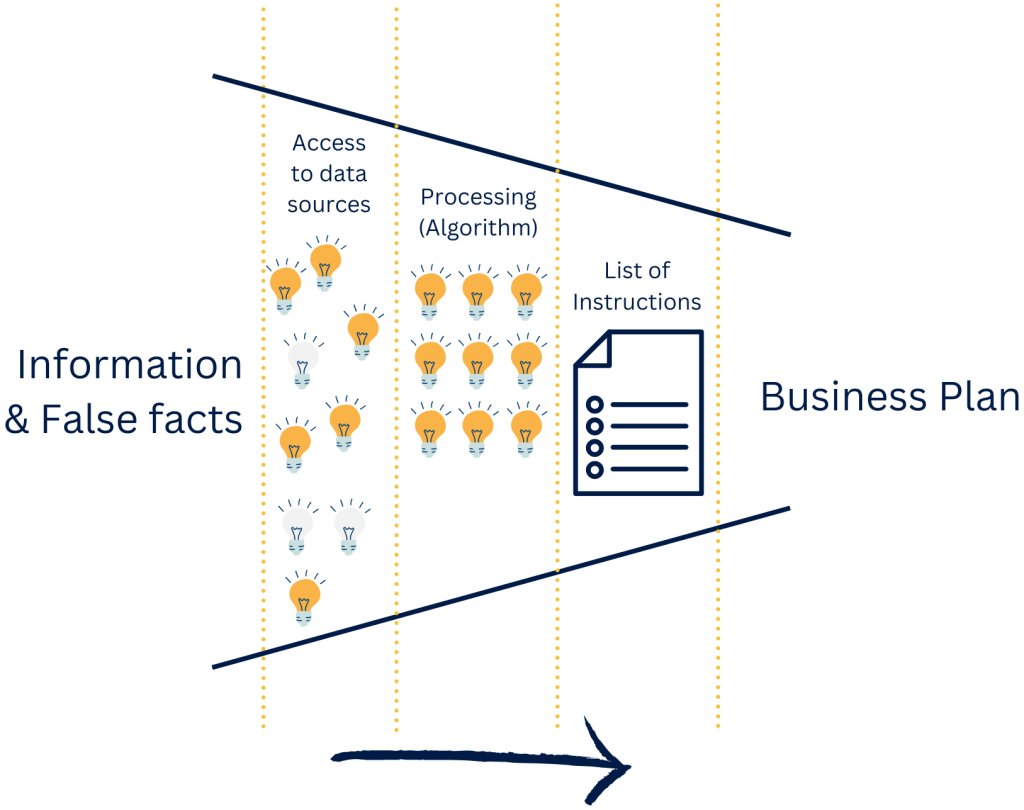
14 May Start a Business – Do You Need a Business Plan
May 14, 2025
Years ago, when I first ventured into the entrepreneurial world, I started attending lectures and business events. I met business gurus who emphasised one simple truth: you need a business plan before starting your business.
Why?
Because preparation is key. You wouldn’t enter a forest without a bag containing all the necessary items, such as food, clothes, and, in some cases, a means of protection like a gun, in case you meet a bear.
The market is a hostile environment where everyone competes for new customers, and companies strive to outdo each other. Without a strategy, you can easily be “beaten” and “eaten.”
Therefore, planning is essential before starting your business.
What is a business plan?
Let me provide a simple definition as I understand it:
A business plan is a sequence of research and suggestions designed to anticipate future trends, ultimately giving you a list of actions that, if implemented, potentially would increase your company's profit.
Having an adequate business plan depends on three key elements:
- Research: Accessing and gathering information.
- Analysis: How intelligently and effectively you process and interpret the collected information.
- Planning: How strategically you use that information to anticipate the future and decide on your next actions.

All three elements relate to one of the most valuable resources in our society — information. It’s not money; it’s information.
Information
Therefore, we must examine in more detail the qualities typical of information. Here are a couple:
- Quantity: How much information do we have access to?
- Frequency of Change: How quickly does this information change or adapt?
And here are a couple of factors related to how we process that information:
- Intelligence: How capable are we of using that information to construct new models that anticipate the future?
- Threshold: What is the minimum amount of information needed to conduct a good analysis and make a decision?
Quantity and Threshold
The properties “quantity” and “threshold” are directly correlated. The quantity of information depends on our expertise and access to information sources like specialists, libraries, the internet, data collected by companies, and so on. The threshold tells us how much of that information we need to make a decision.
For instance, if I want to open a local shoe store next to my house, I will need to know specifics related to my city, the street, how many people pass that location every day, and so on. But I certainly don’t need to know facts related to how many polar bears are living in the Arctic right now.
In terms of business planning, there are businesses with very high thresholds and businesses with very low thresholds. Usually, large companies entering international markets tend to have much higher thresholds compared to small local companies relying on local customers.
A rule of thumb is that we should aim to start our business with a low threshold. Additionally, the quantity of information we have access to must always be greater than or equal to the threshold; otherwise, we won’t be able to make a decision.

To put it more simply, when you start a business, try to be as lean as possible, minimising dependency on too many factors. This approach allows you to plan and act more easily with less information.
Frequency and Intelligence
The other two qualities, “frequency” and “intelligence,” are also correlated. A century ago, the world changed at a much slower pace compared to today. Now, we live in a world where we have to catch up with new developments every day. Our ancestors lived much slower and probably more peaceful lives.
When starting a business, this means that we may need to read the news and constantly learn to keep up with the changing world, which can ultimately affect our business strategy.
Sadly, our human brains are limited, which means that at a certain point, the world will become so complex that we won’t be able to keep up with everything happening without the help of machines. This is where computational power (intelligence) comes in. It is an obvious fact that today we have much cheaper and significantly greater computational power.

However, be aware that different types of information have different frequencies. For instance, if your business is in the field of Information Technology, it is much more likely that the frequency will be high, simply because software technologies change very quickly. In contrast, a local food store may rely on information that barely changes.
In the best-case scenario, when starting a business, you want a low frequency. But even if that’s not possible, you can compensate by adopting machines to help you analyse the data you have.
The Future I See
Let’s go back to business planning.
The old-fashioned business plan suggests that we sit down and analyse the collected information with the ultimate goal of preparing a strategy for the next few months or years.
Unfortunately, the quantity and frequency of information in today’s world are increasing drastically. There are billions of people, each generating new information every day, millions of companies competing in the market, and hundreds of new scientific breakthroughs occurring daily. The pace at which the world is moving is so fast that I don’t think it will slow down, meaning a fact today may no longer be valid tomorrow.
Therefore, in the future, I no longer see static business plans. Imagine sitting down and investing two months in writing a business plan, ending up with a thick book of instructions. Great job, but in a month, everything written inside may no longer be valid.
In the context of entrepreneurship, business plans as we knew them are coming to an end.
Instead of traditional business plans, we will need:
- Access to information on a daily basis.
- Computational power that analyses that information, makes conclusions, and prepares instructions on how the business should proceed.
- A simple list of instructions and analyses representing a short-term business plan aimed at increasing the company’s profit.
In a way, I envision an evolution of the business plan into the following two components:
- Algorithm: An automated process for accessing and analysing information.
- Business Plan: A concise business plan with instructions resulting from the collected and processed information. This plan will be frequently adapted.

My vision is that if your business has a high threshold and the information it depends on changes with high frequency, you will inevitably need to implement AI tools. This will provide access to more information and enhance your computational power, allowing you to anticipate future trends.
What Does This Mean For My Business?
It means that writing business plans as we used to will no longer be valid in the near future. My best advice is to write a lean business plan by following the steps I described in my previous articles:
- What problem do you solve, and how?
- In one sentence, can you explain what your business does?
- Identify who your customer is.
- What is your value proposition?
- Prepare a simple one-page business plan.
On top of that, preparing a basic financial plan is a must!
And finally:
- Information Sources: Prepare a list of key information sources on which your business depends. These are the sources you will need to observe and analyse regularly to make decisions and run your business. This can range from little things like “What’s the weather outside?” to “What is the economic situation in the European Union?” Be aware that this list can be quite long.
- Access: How do you collect this information?
- Calculation Power: A very smart decision would be to implement AI tools in your business.
Be aware that automating process in your company via AI tools is also part of this exercise. The reason is the following. If you implement AI tools and automate process in your companies that will improve the speed at which you process information in general which consequently affect the decision making as a whole.
